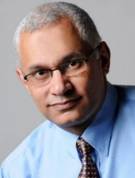工程防灾减灾学术讲坛
题目(Title):Mission and Major Research Components of the Pacific Earthquake Engineering Research (PEER) Center
讲座人(Speaker):Khalid M. Mosalam教授
时间(Time):2018-7-13(周五),下午2:00-3:00
地点(Venue):灾后重建与管理学院C313
ABSTRACT
The Pacific Earthquake Engineering Research (PEER) Center is a multi-institutional research and education center spanning over a wide range of institutions and disciplines. Investigators from over 20 universities, several business and industry partners, and practitioners at various State and Federal government agencies contribute to PEER’s research programs focused on performance-based earthquake engineering (PBEE). This takes place in several disciplines including structural and geotechnical engineering, geology/seismology, lifelines, transportation, risk management, and public policy. Fundamental mission of PEER is the reduction of earthquake hazard on the society. Three key components constitute the core of this fundamental mission: (1) providing basic life safety during earthquakes and eliminating earthquake induced deaths and injuries, (2) increasing resiliency of the built environment with significant reduction of downtime, and (3) developing enabling technologies to achieve the above two objectives. This presentation starts with a basic review of the PEER Center. Subsequently, progressive collapse simulations and the PEER PBEE framework and its application to common and important structural and electrical equipment systems are presented as examples of the first two components. Subsequently, enabling technologies developed within PEER that facilitate analytical and hybrid simulations, namely OpenSees and OpenFresco, are discussed. The presentation concludes with the future vision of PEER activities and potential collaboration opportunities particularly focused on use of big data and machine learning for damage classification from images.
SHORT BIOGRAPHY

Professor Mosalam obtained his BS and MS from Cairo University and his PhD from Cornell University in Structural Engineering. In 1997, he joined the Department of CEE, UC-Berkeley where he is currently the Taisei Professor of Civil Engineering and the Director of the Pacific Earthquake Engineering Research (PEER) Center. He conducts research on the performance and health monitoring of structures. He is active in areas of assessment and rehabilitation of essential facilities, and in research related to building energy efficiency and sustainability. His research covers large-scale computation and experimentation including hybrid simulation. He is the recipient of 2006 ASCE Huber civil engineering research prize, 2013 UC-Berkeley chancellor award for public services, and 2015 EERI outstanding paper award in Earthquake Spectra. He was a visiting professor at Kyoto University, Japan, METU, Turkey, and NTU, Singapore. He was a High-end Expert in Tongji University and is a core-PI for “Internet of Things & Societal Cyber Physical System Lab” of Tsinghua-Berkeley Shenzhen Institute.
我校中国西部减震防灾中心
8181801威尼斯
我校灾后重建与管理学院
欢迎广大师生参加